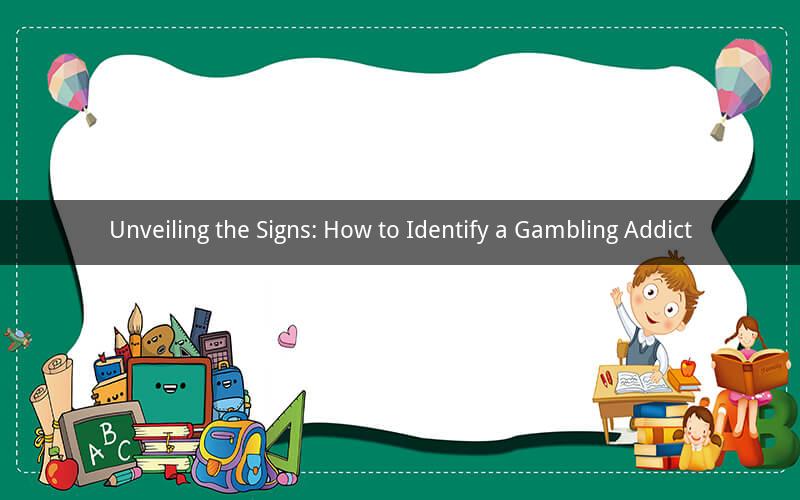
Introduction:
Gambling addiction is a serious issue that affects individuals, families, and communities. Recognizing the signs of a gambling addiction is crucial for early intervention and support. In this article, we will explore various indicators that can help you identify if someone you know is struggling with a gambling addiction.
1. Unexplained Financial Problems:
One of the most evident signs of a gambling addiction is unexplained financial difficulties. An individual may start borrowing money, maxing out credit cards, or even selling personal belongings to fund their gambling habits. They may also have hidden bank accounts or financial statements to conceal their spending.
Question 1: How can you determine if someone is borrowing money to support their gambling addiction?
Answer 1: Look for signs of financial stress, unexplained debts, or frequent requests for loans. Pay attention to any attempts to hide financial transactions or statements.
2. Secretive Behavior:
Gambling addicts often become secretive about their activities. They may avoid certain family members or friends, hide their gambling habits, or lie about their whereabouts. This behavior is a clear indication that they are trying to conceal their addiction.
Question 2: What are some common ways a gambling addict tries to hide their addiction?
Answer 2: They may avoid social gatherings, change their daily routines, or lie about their activities. They may also try to isolate themselves from loved ones to keep their addiction a secret.
3. Emotional and Behavioral Changes:
Gambling addiction can have a significant impact on a person's emotional and behavioral well-being. Look out for signs of mood swings, irritability, aggression, or withdrawal from social activities. An individual may also experience sleep disturbances, loss of appetite, or increased anxiety levels.
Question 3: How can you identify emotional and behavioral changes associated with gambling addiction?
Answer 3: Pay attention to sudden mood swings, irritability, aggression, or a decrease in social interactions. Look for signs of sleep disturbances, loss of appetite, or increased anxiety levels.
4. Financial Lies and Denial:
Gambling addicts often lie about their gambling activities and deny their addiction. They may downplay the severity of their problem or shift the blame onto others. Denial is a common defense mechanism used to avoid confronting the reality of their addiction.
Question 4: How can you distinguish between a person's genuine concern for their gambling problem and denial?
Answer 4: Look for a consistent pattern of lying and denial. Pay attention to their inability to acknowledge the impact of their gambling on their life and relationships. A genuine concern for their problem would involve taking responsibility and seeking help.
5. Relationship Strain:
Gambling addiction can strain relationships with family, friends, and colleagues. An individual may become isolated, unresponsive, or neglect their responsibilities due to their preoccupation with gambling. They may also experience arguments, conflicts, or even legal issues related to their gambling.
Question 5: How can you determine if someone's gambling addiction is affecting their relationships?
Answer 5: Look for signs of strained relationships, increased conflicts, or neglect of responsibilities. Pay attention to their withdrawal from social activities and the impact of their gambling on their personal and professional life.
Conclusion:
Identifying a gambling addict is not always easy, but recognizing the signs can help in providing support and intervention. Unexplained financial problems, secretive behavior, emotional and behavioral changes, financial lies and denial, and relationship strain are some of the key indicators to look out for. By being aware of these signs, you can take proactive steps to help someone struggling with a gambling addiction and encourage them to seek professional help.